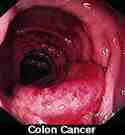Among the different types of cancers, colorectal cancer ranks sixth overall, fifth among males and seventh among females as the leading cause of death among Filipino men and women, according to the Department of Health (DOH). Some 2,657 deaths were reported in 2005 due to colorectal cancer.
“Two thirds of colorectal cancer are located somewhere in the colon,”says Dr. Manuel Francisco Roxas, president of the Philippine Society of Colorectal.
Cancer starts when cells in a part of the body start to grow out of control. Cancer of the large vowel often occurs after the age of 50 and slightly more frequent in women than in men.
“In most people, colorectal cancer develops slowly over a period of several years. Before a cancer develops, a growth of tissue or tumor usually begins as a non cancerous polyp on the inner lining of the colon or rectum,” explained Dr. Gerry Cornelio, former head of the Philippine Society of Medical Oncology (PSMO).
Not all polyps becomes cancerous though, but nearly all colorectal cancers start out as polyps. There are certain symptoms that may indicate the presence of colorectal cancer.
Dr. Cornelio says that some of the signs and symptoms of colorectal cancer include a change in bowel habits, such as diarrhea, constipation, or narrowing of the stool that lasts for more than a few days; a feeling that you need to have a vowel movement that is not relieved by doing so; rectal bleeding, dark stools, or blood in the stool (often, though, the stool will look normal); cramping or abdominal pain; weakness and fatigue.
If you have any of the aforementioned symptoms or consider yourself at risk even without the symptoms, you may want to consult with a doctor about your concerns. Colorectal cancer is curable when detected early. Unfortunately, early colon cancer is asymptomatic, and there is still no efficient screening method for early detection.
Colorectal cancer occurrence is attributed to one’s lifestyle and several lifestyle related factors have been linked also to colorectal cancer. Smokers, for instance, are more likely to die of colorectal cancer than non smokers. A diet in red meat and low in fresh fruits, vegetables, poultry and fish increases the risk of colorectal cancer.
In a study by the European Prospective Investigation into Cancer and Nutrition suggested that diets high in red and processed meat, as well as those low in fiber are associated with an increased risk of colorectal cancer. Individuals who frequently eat fish showed a decreased risk.
Consumption of one or more alcoholic beverages a day at baseline was associated approximately a 70 percent greater risk of colon cancer.
Other lifestyle related factors include physical inactivity, obesity and type 2 diabetes.
“Regular colorectal cancer screening is one of the most powerful weapons for preventing the disease,” pointed out Dr. Jhade Peneyra, PSMO vice president.
